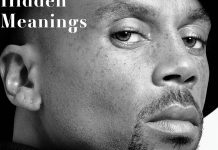Like most Anglo-Saxon surnames, Slaughter probably derives from an ancestor’s occupation: a butcher or someone else who got his hands bloody for a living.
So Karin Slaughter’s success as a crime writer seems like the uncanny outcome of some long-ago, genealogical foreshadowing, even though it would be too obvious a plot development for any of her unpredictable page-turners. Her bestselling novels, all set in Georgia, present some of the most indelible and visceral—in every sense of that word—scenes in the suspense canon, with victims flayed, tortured, and slain in theatrical Grand Guignol set pieces of extravagant but meticulous violence. Their fictive trace evidence would glow if sprayed with luminol.
Since publishing Blindsighted in 2001, Slaughter has written eleven more novels, totaling more than 30 million books in print, translated into thirty-two languages. The seven-figure advances for these consistent New York Times bestsellers place her among the highest-paid writers in the world, and her international sales figures for the past decade rank in the top hundred, along with those of William Shakespeare and J.K. Rowling. Two production companies, Entertainment One and Piller/Segan/Shepherd, partners on the Syfy series Haven, have teamed up to acquire the television rights to her early Grant County series revolving around a pediatrician sleuth in a small town, and they enlisted Slaughter to cowrite a pilot script for the show, which will be filmed in Georgia. It is expected to air later this year or in 2013. Another entertainment group in Europe—where her books often debut at number one—is negotiating for a project based on the Will Trent series, which stars an extraordinarily perceptive, dyslexic agent for the Georgia Bureau of Investigation.
The author’s evocative name itself has become an enterprise, with T-shirts, mugs, pet gear, and—a product that reveals her impish streak more than anything else—a plush teddy bear in a shirt emblazoned with “I Got Slaughtered” in a red, spattered typeface.
“Just for fun,” she says.
A blonde with a piercing, almost baleful gaze in photographs—like a haunted-house portrait, her blue eyes seem to follow you around the room from her book covers—Slaughter, forty-one, packs auditoriums at festivals, where she turns on the peachy charm for her cultish followers, often shaking her head during a Q&A and exclaiming, “It’s fiction, y’all!” Scary on the page but funny on the stage, she is credited with coining the term investigoogling.
“As big as she is in America, Karin is an even bigger rock star in Europe, where writers are revered and celebrated by so many avid readers,” says her longtime agent, Victoria Sanders, noting that Slaughter has sold 4 million books in Holland, a number that is one-quarter of that country’s population. “Part of it, too, is her presence, her warmth, her wit. Walking around with her at a book festival recently in Frankfurt, Germany, was like traveling with Elvis, with these gaggles of young girls spotting her and then screaming and jumping up and down and begging for her to autograph this and that. Seriously, it was wild.”
Slaughter is the only author to have been honored four times by Amsterdam’s Crimezone Thriller Awards, which recognize the international “popular author of the moment,” and she has received the Prix des Lecteurs, France’s prestigious literary prize, for Faithless.
Slaughter, much like Coca-Cola, enjoys global brand recognition but unmistakable, unshakable Georgia roots. While she relishes the adventure of book tours, she also can’t wait to get home and eat barbecue at Fat Matt’s, and she has no desire to live anywhere other than Atlanta. The author always has brought a detailed sense of place and local color to her writing. Her next book, Criminal, to be released in July by Delacorte Press, puts the city in sharper historical focus, flashing back and forth between the present day and the seedier, shaggier, unreconstructed boomtown of the 1970s to examine the embattled roles of the first women in law enforcement. “Kitty [Kathryn] Stockett did such a good job exploring racism in The Help that I wanted to do something similar about sexism,” says Slaughter, who named a missing hooker “Kitty” in Criminal to honor her famous friend. “There’s sort of a Cagney & Lacey feel to it.”
Slaughter immersed herself in the archives of the Atlanta History Center, scoured old photos of buildings, and read local and national magazines to get the era’s slang and “vibe” right. She also spent time with some seen-it-all, veteran policewomen and came away with a checklist of outrages—and triumphs—that are braided into the plot about a serial killer.
“At that time, a woman couldn’t get a car loan or a credit card without a man cosigning, and there had to be semen in a woman’s underwear to bring a rape charge,” she says. “Women working on the force were openly called ‘slits’ to their faces, and the men would go on ‘trim runs’ for sex. These women had their breasts grabbed by coworkers, and one was almost raped by her boss. These women had to take a polygraph, and the first question was: ‘Are you a virgin?’ Then: ‘How many sex partners have you had?’ And: ‘Do you want this job just to have sex with police officers?’ One woman shot back, ‘Depends on the officer.’ All of this was in their workplace—then they had to go out and face the streets.”
Slaughter, the youngest of three sisters, always has enjoyed strong female role models and a dad who “made sure we knew how to use a hammer—he didn’t restrict us based on gender roles,” she says. “He also enjoyed telling stories that scared the crap out of us.”
She grew up in the Lake Spivey area, south of Atlanta. Her father sold used cars, her stepmother managed a bank, and her stepaunt served as chief of detectives for Forest Park. Early on, little Karin displayed a morbid sensibility that rattled her elders.
“I taped the autopsy photos from Marilyn Monroe’s death to my lunch box in fifth grade,” she says, “and I would write stories in which someone inevitably died. My ninth-grade English teacher told me it might be a good idea not to kill off every single character, every time.”
She reveled in Quincy, television’s CSI precursor that influenced a generation of forensic detectives, and she became a familiar fixture at the Jonesboro library, where she gravitated to V.C. Andrews, Helter Skelter, and The Stranger Beside Me, about Ted Bundy. “Did you know that the first full-length detective novel in the country was written by a woman?” Slaughter asks, referring to The Dead Letter by Metta Fuller Victor. That 1866 mystery set a precedent for stories that not only outline the cat-and-mouse dynamics of a crime, but also explore its wider ramifications on relationships and domestic life—the sort of character-driven narrative that Slaughter has used to make her bones.
Slaughter attended Georgia State University for a few years and then buckled down to write, supporting herself by painting houses and doing odd jobs, including pest control. She became an entrepreneur, launching a signage company—Snappy Signs—that she built into a successful business with clients like HiFi Buys.
“I set the goal of getting a book contract by age thirty,” she says. “Having grown up here, I assumed it had to be another Gone with the Wind, so I wrote a historical fiction novel set in the antebellum South, called Spit in One Hand.”
Although never published, it caught the attention of the Victoria Sanders & Associates Literary Agency in Manhattan, which also represents the estate of Zora Neale Hurston. “It was a fine book,” Sanders says. “It was clear from the beginning that this writer had talent, had the chops of a young Harper Lee. At the time, the market just wasn’t very strong for historical fiction, so I had trouble selling it despite its quality. Thrillers were hot. So I suggested she try her hand at that, not even thinking about her last name.”
Slaughter wrote the first draft of Blindsighted in three months. She developed a heroine of sorts, Sara Linton, a nurturing, straight-arrow pediatrician who doubles as a coroner in fictional Grant County; gave her a police chief for an ex-husband; and trotted out a flinty female cop with a knack for causing trouble. “Every woman has wanted red hair at some point—including me once, with disastrous results—so I made Sara a redhead, and I made her tall.” Slaughter stands five foot four.
As soon as she finished that book, Slaughter did not turn off her laptop to rest; instead she started on another, Kisscut, and outlined a third, A Faint Cold Fear, to create a series involving the same characters. Pitched as a “cross between Thomas Harris’s Hannibal Lecter series and Patricia Cornwell’s Kay Scarpetta mysteries,” the trio landed a “sum in the high six figures” from William Morrow and Company, according to a story in Variety headlined: “Morrow, Slaughter Ink Killer Book Deal.”
The author was twenty-nine at the time.
Blindsighted came out the day after 9/11. “My publisher offered to let me postpone my first book tour, reasoning that people were not in the mood to come out and hear about more death, but I had worked so hard and was determined to go. So for those first trips out, I’d be the only one on the plane, just me and the stewardess eyeballing each other. I was surprised that I had a pretty good turnout, though, at most of my readings during that aftermath.”
Slaughter produced three more Grant County books and then introduced another, more urban series with a protagonist now beloved by readers: Will Trent, a GBI agent whose childhood was spent in an Atlanta orphanage and the foster care system, where he endured harrowing abuse, evident in visible scars from cigarette burns. So he knows how victims feel, and because of his dyslexia, he relies on unconventional cognitive approaches to solve cases. His developmental reading disorder ultimately works to his advantage in puzzling through criminal behavior, which defies most normal patterns, and his combination of woundedness and heroism (and, again, height) has inspired many a mash note from mooning female bookworms as well as a gay men’s fan club in Australia.
“Detectives talk all day with criminals who are hiding something, so I thought if Will had a secret, it would help him ferret out theirs,” says Slaughter, who has been honored by the American Association of People with Disabilities. “My sister is dyslexic, and she’s so smart, so intelligent in all of the ways that matter. But she was labeled as ‘stupid’ and had to put up with so much shit growing up, even from the teachers at the Christian school she attended—especially from them, actually.”
“I kept getting these Google alerts about one of our agents named ‘Will Trent,’ and he appeared to be incrementally traveling along out West,” recalls John Bankhead, director of public affairs for the GBI. “I finally thought, ‘Who is this guy, and what is he doing out there to get in the paper so much?’ So I checked our rolls and didn’t find an agent with that name, then realized he’s this made-up character in a book. I still know where Karin is on any given day during her book tours, traveling across Europe, by these Google alerts that pop up wherever she goes.”
Afterward, at the suggestion of Representative David Ralston, now the speaker of the house and a “friend of my daddy,” Slaughter says, the GBI began lending her some expertise from time to time, with interviews, fact-checking, and an observational perch on the sidelines of training exercises.
She also has fired off a few rounds at the GBI’s shooting range to get the feel of a gun, and she now owns a Springfield 9MM. In this firearm-fetishizing culture, every writer who has ever introduced a Glock into the story line can attest that readers will yelp loudest about those descriptions. Slaughter notes, “They’ll forgive killing off a beloved character faster than they’ll forgive a gun mistake.”
“Karin is a good shot,” says John Heinen, an inspector on the command staff of the GBI. “I read a lot of crime novels before I go to bed at night, and hers have this exhaustive depth of detail. I’m just really taken aback at the realism on the page. I also like that she doesn’t use some suave, debonair, 007 hero who always gets a neat, happy, Hollywood ending. You never know how her books will end, and sometimes they don’t end happily, which is more like real life.”
The past decade has been dubbed the “golden age of thrillers,” with suspense writing finally transcending the “genre” ghetto to enjoy literary prestige.
“I consider Karin the very creepy godmother of my writing; her dark imagination is boundless and inspiring,” says Gillian Flynn, author of Dark Places and Gone Girl. “She is so streamlined, but she slips in these wonderful character details—like the way someone reads a newspaper—that in one sentence relay a chapter’s worth of information.”
Slaughter, who has never been the victim of a violent crime (“my scooter was stolen once, but I hadn’t locked it up”), does not believe in “evil,” though, at least not as a supernatural, catch-all motive. “I think chalking up human behavior to evil lets us all off the hook too easily,” she says. “I try to examine what throws the switch, what happens to someone’s wiring to make him or her commit murder.”
And at every Q&A, the question of her darkling muse comes up. In what charnel house does Slaughter find her inspiration?
“Real life,” she says, clarifying, “not that I base my work directly on true crimes; I’m not comfortable with doing that, but I hear things from my friends in law enforcement and medical examiners’ offices, information that plants ideas, which is how most writers work anyway—an image or something overheard sets an idea spinning, and it goes off in an unexpected direction in my imagination and then on the page.”
Disturbingly, she often has to tone down the material.
“I heard about a woman who had twenty-seven trash bags stuffed into her vagina,” she says. “Well, the message is pretty clear: You’re trash. But I thought that was just so horrific that if I put it into a book it wouldn’t even sound believable. So I reduced the number to eleven.”
In Criminal she describes protracted torture with a needle and thread:
“Her eyes and mouth were sewn shut.” Pete had to use both hands to hold open one of the torn eyelids. They were shredded in thick strips like the plastic curtain inside a butcher’s freezer. “You can see where the thread ripped through the skin.” . . . “These lines along her torso, inside her arms and legs—a thicker thread was used to keep her from moving.” . . . Amanda said, “She must have ripped herself away from the mattress, or whatever she was sewn to, when he started beating her.” Pete expounded on the hypothesis. “It would be an uncontrollable response. He punches her in the stomach, she curls up into a ball. Mouth opens. Eyes open. And then he punches her again and again.”
Slaughter typically adheres to an end-of-year deadline and retreats for two weeks at a time to her cabin in Blue Ridge.
“I write fifteen hours a day, stopping at Oprah-o’clock,” she says. “By the time it’s finished, I collapse and never want to write again. Then I go on a trip, and when I get back, I’m ready to write.”
When she is not scribbling and touring, she exercises at an intown gym, spends time with her cats (“they’re shameless attention whores”), and hangs out at home. She confirms that she does have a “significant other,” but will not elaborate. “I have a few unusual fans, as you can imagine,” she says, “so I try to protect the privacy of my home life.” In Criminal’s acknowledgments, she writes, “And to D.A.—as always, you are my heart.”
Startled by statistics such as “80 percent of children in rural areas use their local libraries as their only access to the Internet and books,” Slaughter also lends her talent, celebrity, and largesse to the cause of endangered libraries. She established a national “Save the Libraries” movement, using the DeKalb County Public Library system for a pilot fundraising event. She is giving DCPL and other library groups all of the U.S. royalties from her short story “Thorn in My Side,” digitally released by Thomas & Mercer, and she also rounded up her fellow thriller authors—Michael Connelly, Lee Child, Mary Kay Andrews—to donate signed copies, first editions, and even future character names for a charitable auction on eBay. Conceivably, for the right donation, you could become one of Slaughter’s butchered victims.
In 2010 Slaughter wrote an editorial for the Atlanta Journal-Constitution that has become a galvanizing manifesto for librarians all over the country. In “Fight for Libraries as You Do Freedom,” she recalls the poverty of her father’s early life and writes: “When your kids are starving, you can’t point with pride to a book you’ve just spent six hours reading. Picking cotton, sewing flour bags into clothes—those were the skills my father grew up appreciating. And yet, when he noticed that I, his youngest daughter, showed an interest in reading, he took me to our local Jonesboro library and told me that I could read any book in the building so long as I promised to talk to him about it if I read something I didn’t understand. I think this is the greatest gift my father ever gave me. Though he was not a reader himself, he understood that reading is not just an escape. It is access to a better way of life.”
And with talent and persistence, that kid with her nose in a book at the library might grow up to make a killing.














